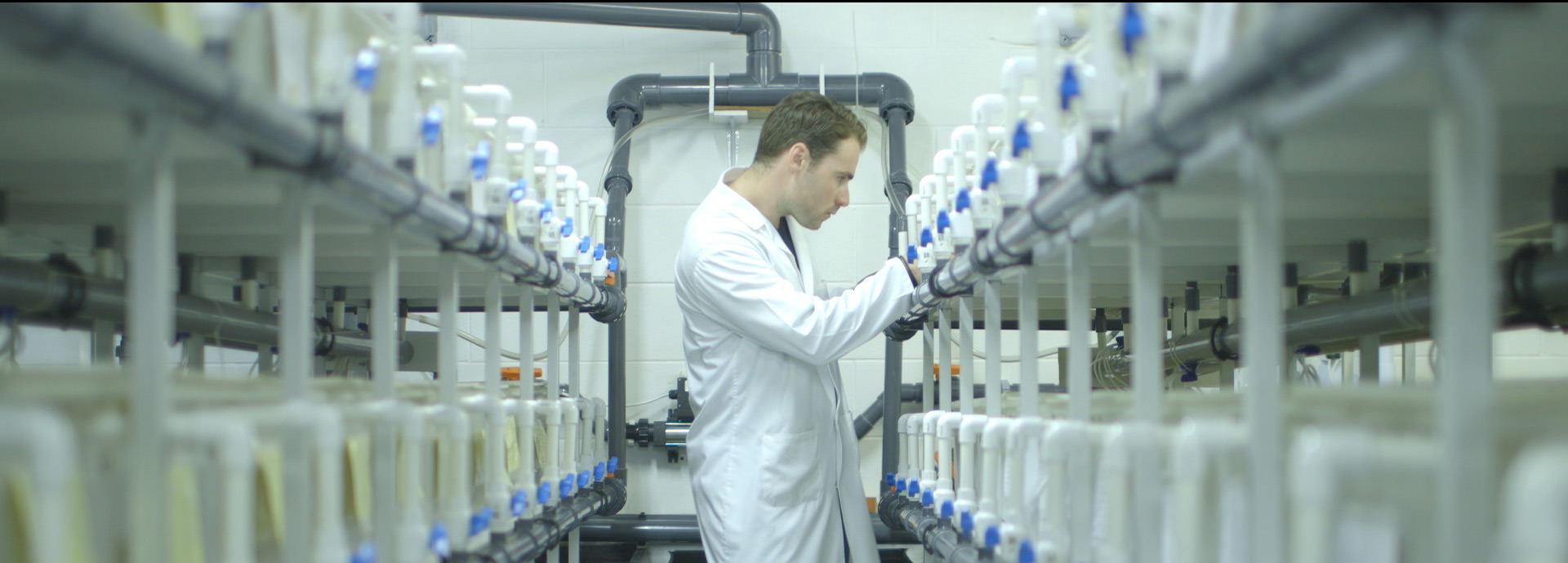Vaccines are now recognised as essential tools for the prevention and control of diseases in aquaculture. We research and develop fish vaccines with funding from major pharmaceutical companies. Most farmed fish in the UK are now vaccinated with vaccines developed at the Institute. The result has been a vast improvement in fish health and survival, and a sustained minimal use of antibiotics. We've developed vaccines for sea bass and sea bream, the major farmed species in Europe, as well as the first vaccine for Pangasius catfish in Vietnam. A variety of new vaccines are currently being developed for cultured tilapia fish to support a rapidly growing industry in Asia.
Parasitic disease has posed an increasing challenge for global Atlantic salmon aquaculture, particularly with respect to sea lice and gill diseases. Together these problems cost the global industry in excess of over £0.76 billion per annum. We played a central role in developing integrated pest management strategies to control these diseases and reduce the need for chemicals, an approach that has been adopted worldwide.
We've been at the forefront of developing sustainable plant-based alternatives to marine fish oil as a feed ingredient. This has also been hailed as a major breakthrough, and the resulting higher sustainability feeds have provided a solution that is now employed across the world’s fish farming industry.
Researchers at the Institute developed a novel, decentralised approach to improve the availability of high-quality tilapia seed (fish fry) and more nutritious fish in Bangladesh. This has made easier for easier for farmers to stock healthy tilapia in the waters of their rice fields which increases income and reduces the need for pesticide. This has brought significant socioeconomic benefits to poorer communities.
Our fundamental research in fish adaptability and cognition has led directly to changes in management practices, accreditation and industry guidance.
The Darwin Sherbro Oyster Project is working with remote communities in Sierra Leone to offer sustainable income for local women through the culture, processing and marketing of native mangrove oysters.
We’re coordinating interdisciplinary projects on environmental licensing and regulation. This has improved aquaculture governance in Europe and Africa and led to changes in marine farm management practices for fish and shellfish.
Our research into movement of aquaculture offshore, away from crowded coasts, provided industry and regulators with insight into fish health and welfare in these new environments. This has allowed for more informed planning and management.
Research on negative impacts of aquaculture intensification have changed practice in the welfare and treatment of farmed shrimp, winning the prestigious 2020 Global Aquaculture Innovation Award.
Our research for European aquaculture has allowed improvements in production and competitiveness, while ensuring sustainability and food safety and environmental compliance.
We have been particularly successful in raising the visibility of aquaculture’s role in transforming food systems in the UK.

